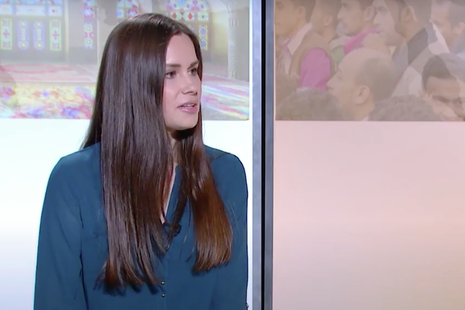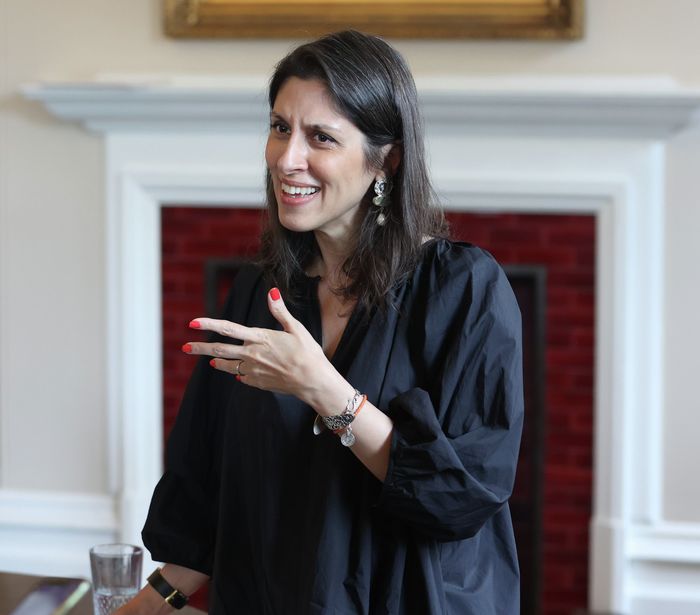Grad’s Cam account ‘hacked’ by her Iranian captors
Dr Kylie Moore-Gilbert claims her alumni account was breached by the group who held her hostage in Iran

A former student has claimed the Iranian military “hacked” into her Cambridge Alumni account.
Dr Kylie Moore-Gilbert said that her account had been broken into by the Islamic Revolutionary Guard Corps (IRGC), a group who had previously held her hostage in Iran in 2018.
The Middle East researcher found that the contact information in her alumni account, including her name, address and phone number had been replaced with an address in Tehran and an email address in the name of Amina Mohamadi.
The former Wolfson student asked: “The big question here is, when did this data breach occur, and are the Iranians still there now in the University’s computer networks?”.
Moore-Gilbert, who studied AMES between 2009 and 2013, was detained in Iran under false charges of espionage in September 2018. She was held for 804 days, enduring solitary confinement and physical abuse, before being freed in a prisoner swap in November 2020.
The IRGC has a record of attacking universities. In 2019 the group was accused of targeting SOAS, posing as British academics to obtain sensitive information. According to a source, the IRGC also accessed Moore-Gilbert’s former employer, Melbourne University’s, internal system, including staff email accounts.
Moore-Gilbert said: “this is potentially a state supported attack and is a very serious matter, it should be dealt with by people with expertise in cybersecurity. It must be taken more seriously to see if more data has been stolen.
“The AMES department is seen by the IRGC as a recruitment ground for MI6 and GCHQ. If they have gained broader access to the Cambridge Alumni network, that could include details of staff and students researching sensitive areas that are of interest to the IRGC.
“Today, for many authoritarian regimes, academics are the new journalists. However, while media organisations provide robust training for correspondents sent into the field, academics are largely left to fend for themselves.”
Moore-Gilbert said the revelation of the alleged hack was made “doubly painful”, as the University did not make a public statement of support during her unjust imprisonment. “Cambridge should take a strong stance to defend the academic freedom of its staff, students and alumni”, she said.
After looking in to the alleged hack, a University spokesperson dismissed the suggestion that the IRGC had hacked her account, putting it instead down to their “human error”.
“At Dr Moore-Gilbert’s request, we investigated irregularities in her alumni account and were satisfied that the incorrect data was added through human error. Dr Moore-Gilbert’s personal data was not compromised and we have removed the incorrect information. The University has apologised to Dr Moore-Gilbert for the concern this must have caused her.
“We were, of course, concerned with Dr Moore-Gilbert’s plight during her detention, but received clear advice that public intervention might do more harm than good. We are delighted that Dr Moore-Gilbert has now regained her freedom.”
 News / SU reluctantly registers controversial women’s soc18 December 2025
News / SU reluctantly registers controversial women’s soc18 December 2025 News / Dons warn PM about Vet School closure16 December 2025
News / Dons warn PM about Vet School closure16 December 2025 Features / Should I stay or should I go? Cambridge students and alumni reflect on how their memories stay with them15 December 2025
Features / Should I stay or should I go? Cambridge students and alumni reflect on how their memories stay with them15 December 2025 News / Cambridge study finds students learn better with notes than AI13 December 2025
News / Cambridge study finds students learn better with notes than AI13 December 2025 Fashion / The art of the formal outfit 18 December 2025
Fashion / The art of the formal outfit 18 December 2025










